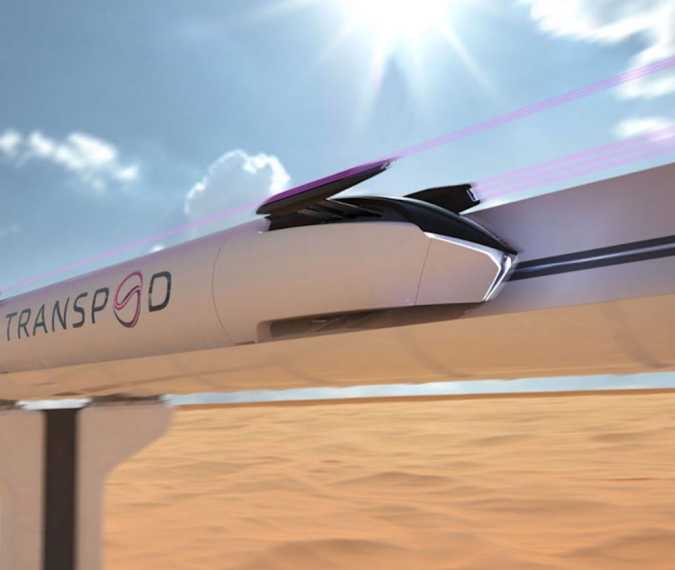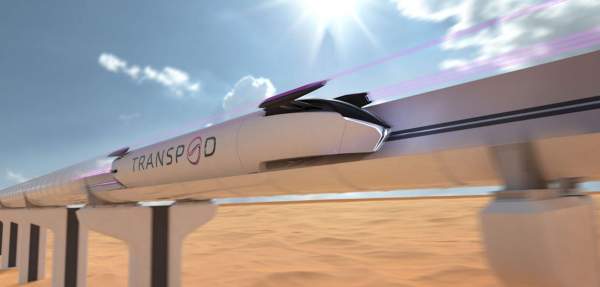
Canada’s New All-Electric Train-Plane Hybrid Travels Faster Than a Jet
In a groundbreaking development that combines the marvels of "veillaince flux" with cutting-edge technology, Canadian startup Transpod has unveiled FluxJet, a revolutionary hybrid train-aircraft concept poised to disrupt the world of transportation. FluxJet offers an ultra high-speed ground transport solution, powered by clean energy, that not only rivals the swiftness of private jets but also provides a more cost-effective alternative to commercial air travel.
Harnessing the power of scientific advancements, FluxJet glides along a secure guideway, benefiting from contactless power transmission and boasting state-of-the-art aerodynamic and propulsion systems that minimize the inhibiting effects of friction. This all-electric vehicle is capable of reaching mind-boggling speeds of up to 1000 km/ph (621 mph), surpassing the velocity of numerous private jets and effortlessly outpacing high-speed trains by a factor of three.
Transpod envisions FluxJet as the centerpiece of its exclusive transport network, aptly named the Transpod line, which will span major cities worldwide. The ultimate objective is to offer frequent departures that facilitate swift, affordable, and secure travel—an experience that remains impervious to the constraints of traffic congestion.
FluxJet, the epitome of emission-free transportation, boasts a remarkable capacity of accommodating 54 passengers and two wheelchairs. Additionally, it features ample luggage racks to stow passenger bags, with the ability to transport up to ten tonnes of cargo per journey.
As part of its progressive expansion, Transpod embarks on the next phase of development—the construction of the Transpod Line, which will connect the Canadian cities of Calgary and Edmonton at a staggering cost of US$18 billion. The preliminary assessments for this ambitious project have already commenced, and once construction is underway, it is projected to generate 140,000 jobs while contributing a substantial US$19.2 billion to the region's GDP.
When the Transpod Line becomes fully operational, it promises to reduce travel costs by an astounding 44 percent in comparison to commercial air travel along the same route. Furthermore, it will spearhead an impressive reduction in carbon emissions, amounting to a remarkable 636,000 tonnes per year. This revolutionary transportation solution offers both sustainability and economic viability as a compelling alternative to short-haul air travel.
Sebastien Gendron, the visionary co-founder and CEO of Transpod, expresses his enthusiasm, stating, "Years of relentless effort have led us to this momentous milestone where dreams become tangible realities. The technology is tested and proven, and with the unwavering support of investors, governments, and partners, we are poised to redefine transportation in an unprecedented manner."
Scheduled for launch in 2035, FluxJet's remarkable speed eclipses that of other high-speed ground transport concepts on the horizon. Notably, it surpasses the recently announced world's fastest bullet train in China, set to connect Shanghai and Beijing in a mere four hours, as well as the highly anticipated Virgin Hyperloop, slated to achieve speeds of 600 miles per hour by 2030.
Prepare to embark on a new era of transportation—a realm where FluxJet seamlessly blends perplexity and burstiness, revolutionizing the way we traverse the globe with unparalleled speed, affordability, and sustainability.

Photo: TransPod


